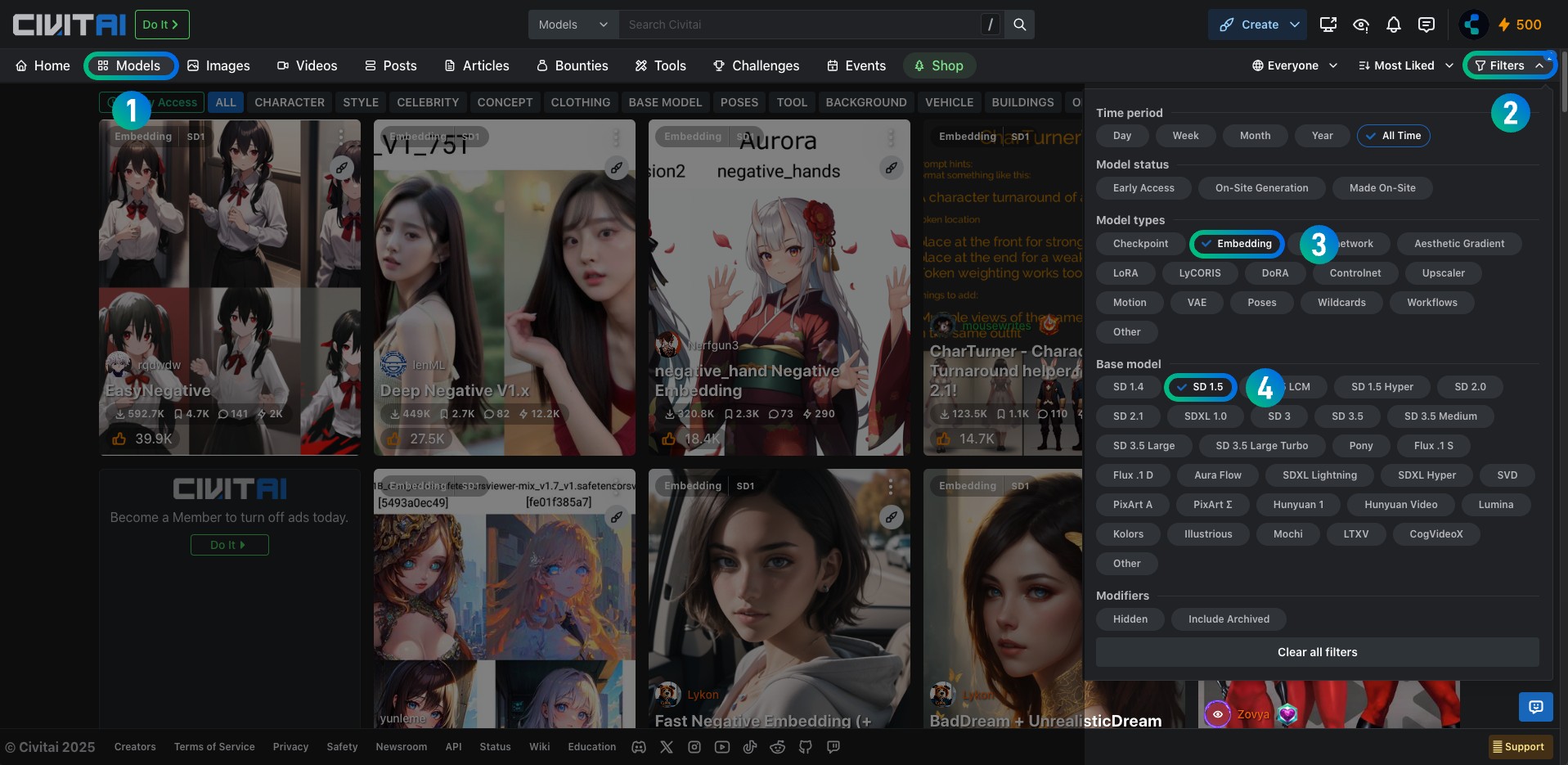Embeddings (Textual Inversion) model, usually on the model site, we can see the embedding model, which is able to output a specific style.
For example, it can generate flat-style images, or give certain characteristics to the characters in the picture, or even give the entire picture a specific artistic style.
In addition, the embedding model is usually small in size, only a few KB. You can simply understand it as a compressed package of prompt words (prompt). The effect you originally needed to achieve in complex text descriptions can be easily achieved through the Embedding model. In addition, its size is very small, so it is very convenient to use.
The Embeddings (Textual Inversion) model is mainly used to embed specific element features in the image, such as picture style, character characteristics, scene characteristics, etc., so that the model can generate images that match these features.
Store the downloaded model in the "ComfyUImodelsembeddings" directory, and then restart or refresh the ComfyUI interface to load the corresponding embedding model.
Because the model needs to distinguish versions, in order to facilitate later use, it is recommended that you rename the model file and add a model version prefix such as "SD1.5-Model Name", or not rename it. Create a new folder in the corresponding model directory, name it with the big model version, and then copy your model file into it like "ComfyUI_windows_portableComfyUImodelsembeddingsSD1.5".

Most AI drawing communities provide model downloads. Filter Embeddings/Textual Inversion in the corresponding website filters to quickly find the model of this type.
civitai: https://civitai.com
liblib (domestic in China): https://www.liblib.art/
As shown in the figure below, select Embeddings when filtering models in civitai to filter out embedding models

Embeddings trigger Words (trigger Words). Usually there will be trigger words on the Embeddings model details page. Usually, you just enter the corresponding prompt word in propt to trigger the effect of Embeddings. However, it is often difficult to remember the trigger words of many models. You can also directly enter "embedding: model file name" in "CLIPTextEncode" and use the model.
In addition, Embeddings is also divided into use in forward prompt words and in reverse prompt words, and vice versa.